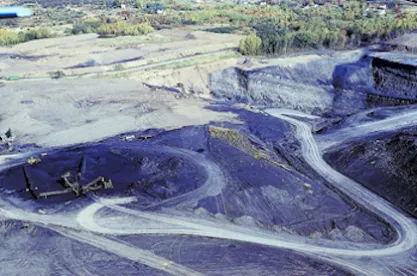Reporting on the historic climate deal in Paris as a result of the COP21 climate change conference, the Guardian’s headline proclaimed “Paris climate deal: nearly 200 nations sign in [sic] end of fossil fuel era.” The future of coal production domestically and internationally is an important topic to many readers. Therefore, this article explores perspectives on COP21 and future coal production.
As reported by The Hill, EPA Administrator Gina McCarthy offered insights through an online post during COP21 on the engagement of the U.S. and China to cut their coal use.
We know now, however, as China does, that it’s [coal] not necessarily the path to the future. We know in the U.S. that we are transitioning away from coal because coal is no longer marketable. We have cleaner natural gas, and we have opportunities for low-carbon sources like renewables and using energy efficiency to lower energy demand. We’re excited, the presidents [of the U.S. and China] have been working together, China is fully engaged, as is the U.S. and others, and we’re hopefully going to see the world come together today.
Is Administrator McCarthy correct that China is fully engaged? The New York Times reported on November 3, 2015, that China has underreported its use of coal. “China Burns Much More Coal Than Reported, Complicating Climate Talks” Lin Boqiang, director of the China Center for Energy Economics Research at Xiamen University, explained “It’s created a lot of bewilderment. Our basic data will have to be adjusted, and the international agencies will also have to adjust their databases. This is troublesome because many forecasts and commitments were based on the previous data.”
What about the second most populated country on the planet? According to The Guardian in an online article “India says Paris climate deal won’t affect plans to double coal output” on December 14, 2015, a senior official of India explained that India still plans to double coal output by 2020 because no alternatives are available. The article further explained that India should have few difficulties financing dozens more new coal mines to ramp up production.
So while President Obama takes steps to transition the U.S. away from reliance on coal for energy production, we really do not know what is happening in China (shocking) and India is doubling its output of coal production to provide affordable energy to its people. Does the COP21 climate deal make sense?
According to an online article “Global Climate Proposal Deserves Serious Scrutiny” posted on November 30, 2015 by the U.S. Chamber of Commerce, the efforts of developed nations to reduce emissions will not offset the increased emissions from developing nations.
Lopsided reduction targets among nations won’t curb rising global emissions. The United States, Europe, Japan, and a few other developed nations have pledged significant reductions—even though together they make up less than 30% of global emissions. But many developing nations are more concerned with growing their economies than cutting emissions and have made only modest pledges. Even if every nation reaches its reduction goal, global emissions will still rise by 18% between 2010 and 2030.
Global climate change is a very complicated topic stirring strong emotions and presenting no simple solutions. However, as states grapple with deciding how to proceed in response to EPA’s Clean Power Plan (which is designed to transition away from reliance on coal) and courts take up the numerous legal challenges to the Clean Power Plan, it is difficult not to feel sympathy during this holiday season for the many families whose livelihoods will be harmed by the war on coal given the fact that their sacrifices may not have any impact on the climate.



 />i
/>i

